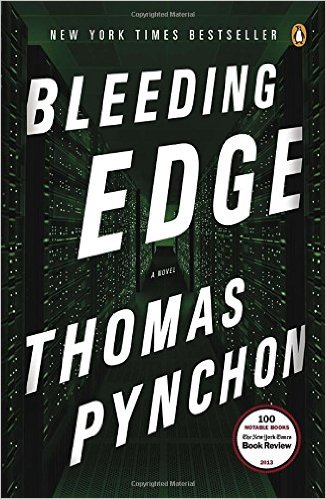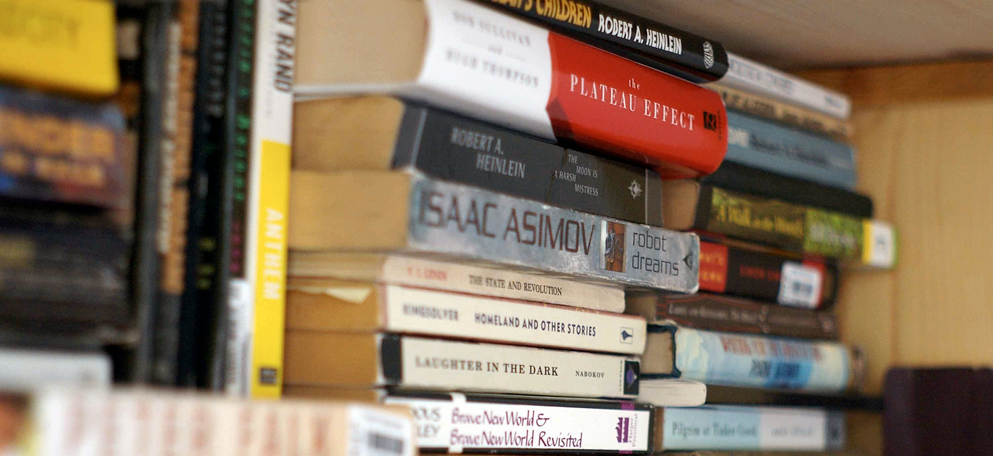
It is 2001 in New York City, in the lull between the collapse of the dot-com boom and the terrible events of September 11th. Silicon Alley is a ghost town, Web 1.0 is having adolescent angst, Google has yet to IPO, Microsoft is still considered the Evil Empire. There may not be quite as much money around as there was at the height of the tech bubble, but there’s no shortage of swindlers looking to grab a piece of what’s left.
Maxine Tarnow is running a nice little fraud investigation business on the Upper West Side, chasing down different kinds of small-scale con artists. She used to be legally certified but her license got pulled a while back, which has actually turned out to be a blessing because now she can follow her own code of ethics—carry a Beretta, do business with sleazebags, hack into people’s bank accounts—without having too much guilt about any of it. Otherwise, just your average working mom—two boys in elementary school, an off-and-on situation with her sort of semi-ex-husband Horst, life as normal as it ever gets in the neighborhood—till Maxine starts looking into the finances of a computer-security firm and its billionaire geek CEO, whereupon things begin rapidly to jam onto the subway and head downtown. She soon finds herself mixed up with a drug runner in an art deco motorboat, a professional nose obsessed with Hitler’s aftershave, a neoliberal enforcer with footwear issues, plus elements of the Russian mob and various bloggers, hackers, code monkeys, and entrepreneurs, some of whom begin to show up mysteriously dead. Foul play, of course.
With occasional excursions into the Deep Web and out to Long Island, Thomas Pynchon, channeling his inner Jewish mother, brings us a historical romance of New York in the early days of the internet, not that distant in calendar time but galactically remote from where we’ve journeyed to since.
Will perpetrators be revealed, forget about brought to justice? Will Maxine have to take the handgun out of her purse? Will she and Horst get back together? Will Jerry Seinfeld make an unscheduled guest appearance? Will accounts secular and karmic be brought into balance?
Hey. Who wants to know?
Quotes and thoughts while reading:
Pynchon has this magical capacity to suck you in - and to keep your mind whirling until the very wrap-up, which then blossoms into a full image of everything and nothing. You suddenly understand everything in the book(well not really) - and you just want to jump back to page 1 and read it again.
"What I'm really looking for," solemn more than impatient, "probably won't be anyplace any search engine can get to..."
"How's that?"
"Deep Web? No way for surface crawlers to get there, not to mention the encryption and the strange redirects-"(p 10) It's interesting to know if people in 2001 were really thinking about the Deep Web - or if Pynchon is translating 2013 slang and information back in time. It's just a glimpse at the cultural references abound in his works.
"Though it's been around in some form for a century and more, Benford's Laws as a fraud examiner's tool is only beginning to surface in literature. The idea is, somebody wants to phony up a list of numbers but gets too cute about randomizing it. They assume that the first digits 1 through 9, are all going to be evenly distributed, so that each one will turn up 11% of the time. Eleven and change. But in fact, for most lists of numbers, the distribution of first digits is not linear but logarithmic. About 30% of the time, the first digit actually turns out to be a 1 - then 17.5% it'll be a 2, so forth, dropping off in a curve to only 4.6% when you get to 9." (p 41)
"She gets in a taxi headed down- instead of uptown, pretends to change her ming much to the driver's annoyance, and ends up in Times Square, which for a few years now she has made a conscious effort not to go near if she can help it. The sleazy old Deuce she remembers from her less responsible youth is no more, Giuliani and his developer friends and the forces of suburban righteousness have swept the place Disneyfied and sterile - the melancholy bars, the cholesterol and fat dispensaries and porn theatres have been torn down or renovated, the unkempt and unhoused and unspoken-for have been pushed out, no more dope dealers, no more pimps or three-card monte artists, not even kids playing hooky at the old pinball arcades -- all gone. Maxine can't avoid feeling nauseous at the possibility of some stupefied consensus about what life is to be, taking over this whole city without mercy, a tightening Noose of Horror, multiplexes and malls and big-box stores it only makes sense to shop if you have a car and a driveway and a garage next to a house out in the burbs. Aaahh!" (p 51) Not only is there a strong link to Times Square Red, Times Square Blue - but this is another example of the beauty of Pynchon's writing. It's such a long sentence - but it feels so... tight. So fun. So short. So paunchy. Man - it's good.
"He has a tap in a back office at hashlingrz."
"Somebody's in there wearing a wire?"
"Its, actually it's a Furby."
"Excuse me, a--"
"Seems there's a voice-recognition chip inside that Eric was modifying--"
"Wait, the cute fuzzy little critter every child in town including my own had to have a couple of Christmases back, that Furby? this genius of yours hacks Furbys?" (p 81)
"The plan for the summer is to fly to Chicago, take in the town, rent a car, drive to Iowa, visit with the grandparents there, then go off on a grand tour of what Maxine thinks of as the Midol West, because whenever she's there it feels like her period." (p 134)
"Since going rogue, Maxine has acquired a number of software kits, courtesy of certain less reputable clients, which have bestowed on her superpowers not exactly falling within Generally Accepted Accounting Practices, such as thou shalt not hack into anybody's bank account, thou shalt leave that sort of thing for the FBI. She roots around in a couple of desk drawers, find an unlabeled disc in a sickly green metallic shade, and well before lunch is into Lester Traipse's private affairs. Sure enough, the mystery shortfall is exactly balanced by a sum being regularly transferred on into one of Lester's personal accounts." (p 173)
"Presently they're linked and slowly descending from wee-hours Manhattan into teeming darkness, leaving the surface-Net crawlers busy overhead slithering link to link, leaving behind the banners and pop-ups and user groups and self-replicating chat rooms...down to where they can begin cruising among co-opted blocks of address space with cyber-thugs guarding perimeters, spammer operation centers, video games one way or another deemed too violent or offensive or intensely beautiful for the marker as currently defined..."(p 240) Whew, doesn't that feel real? Doesn't that seem like the streets of Bladerunner - or some futuristic city? It just jumps off the page and into my mind.
Look up at some point the movie: Yozhik v Tumane (1975)
"Later, back home, Horst settled in in front of his computer screen, "Guys, come here, look at this. Darndest thing."
The screen is full of numbers. "This is the Chicago Exchange, toward the end of last week, see? there was a sudden abnormal surge of put options on United Airlines. Thousands of puts, not a heck of a lot of calls. Now, today, the same thing happens for American Airlines."
"A put," Ziggy sez, "that's like selling short?"
"Yeah, when you're expecting the stock price to go down. And trading volume meanwhile is way, way up -- six times normal."
"Just those two airlines?"
"Yep. Weird, huh?" (p 315) It's strange to read a story during a time period that wasn't that long ago - with a major historical incident I lived through. Clearly this is in some way shape or form a piece of the looming 911 element that is slightly and always in the background of this book. It's just interesting to see it - and to think about it / get thrown back into that space and time.
"You're OK with her posting the video?"
"That was always the idea, I tried to spread around ten, twenty DVDs hopin somebody with the bandwidth would post one at least. Someday there'll be a Napster for videos, it'll be routine to post anything and share it with anybody."
"How could anybody make money doing that? Maxine can't quite figure." (p 348) Ahh - the simpler times.
"Off the interstate, after a couple of turns, they pull in to a truck stop. The camera goes around to the back of the trailer, Eric in close-up gets a serious face. “This is all deeply secret right now. This disc you’re watching has to be destroyed soon as you’re done with it, grind it, shred it, pop it in the microwave, someday it’ll all be in a feature-length documentary, but not today.”
“Couple guys in a truck?” Maxine interrogates the screen.
Eric unlatching the door and rolling it up, “You never saw this, OK?” She can make out, stuffed inside, racks of electronic gear receding to infinity, LEDs glowing in the dimness. She hears the hum of cooling fans. “Custom shock-mounted, everything mil-spec, these here are all what they call blade servers, warehouses full going as you might expect for rock-bottom prices these days and who,” Eric in a cheerful cloud of cigar smoke, “I bet you’re wondering, would be springing for a rolling server farm, in fact a fleet of us, out on the move and untrackable 24/7? what kind of data would these units be carrying on their hard drives, so forth.” (p 436)
I can't say I particularly loved the ending of this book - and it felt a bit long - but damned if there weren't some exceedingly spectacular parts that make the whole book worth whatever time you decide to sink into it. Pynchon has skyrocketed up into one of my new favorite authors. Mostly because he challenges me - and writes some truly beautiful prose.
<< click to go back
© JKloor Books
